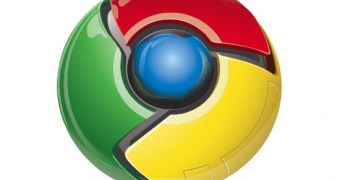According to recent reports on the Internet, chip giant Intel has been collaborating with Google on the development of the recently announced Chrome OS, an open-source operating system that is to provide PC vendors with a choice for their upcoming netbooks. Although Intel was not among the partner-companies recently confirmed by Google, the chip maker has claimed that it has been working with the Mountain View, California-based search giant on its upcoming operating system. In addition, it looks like the collaboration between the two leaders in their respective fields also extends to Google's Android OS for Intel's future MID platform.
In a recent news-article on TG Daily, Intel is said to have confirmed said partnership with Google, stating that it supported the search giant's move. “We have been privy to the project for some time and we have worked with Google on a variety of projects, including this one. We welcome Google's move here,” an Intel rep told TG Daily. The collaboration between the two could spawn a response from Microsoft, which has been actively collaborating with Intel throughout its existence. This can only fuel previous rumors according to which the software giant was preparing an operating system that would support ARM microarchitecture.
In addition to the Chrome OS project, Intel and Google's collaboration extends to other products from the two companies, namely the former's future mobile Internet device (MID) platform and the latter's Android OS. In a recent news-article on Digitimes, citing sources from the Taiwan-based MID makers, Intel wants its hardware platforms to be supported across a range of operating systems, granting its next-generation Moorestown platform more chances to succeed.
Google's Chrome OS and Android operating systems have benefited from wide media exposure, with some reports claiming that these could provide the tools for a shift in the industry for computer systems and mobile devices.

 14 DAY TRIAL //
14 DAY TRIAL //